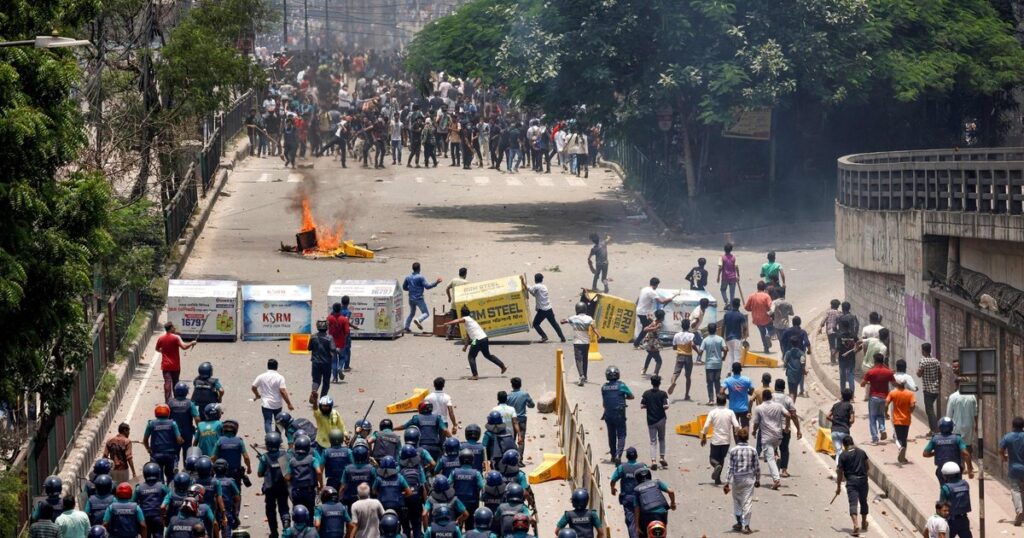The streets of Dhaka are less heated and violent than they were two weeks ago following a severe crackdown on dissent, including the imposition of a curfew and a top court ruling that reduced the quota of jobs reserved for descendants of Bangladesh’s civil war veterans—the apparent cause of the student protests. Despite this concession to the protesters’ demands, Bangladesh’s political and social fabric is severely damaged. The recent demonstrations and subsequent lethal crackdown have shocked many Bangladeshis, potentially marking an irreversible turning point.
This crackdown was so harsh, even by the intensely political, often dangerous standards of Bangladeshi politics, that it could lead to a further backlash against the ruling government, a greater exile of educated Bangladeshis, and potentially threaten longtime leader Sheikh Hasina’s grip on power.
More on:
Bangladesh has experienced significant democratic backsliding under Sheikh Hasina and her Awami League government. Freedom House’s 2007 annual assessment of Bangladesh noted that “political power regularly changes hands, and elections are polarizing events that are competitive and bitterly fought.” Now, political power effectively no longer changes hands. Through electoral machinations, intimidation, and outright violence, the Awami League has “won” four terms in a row (and a fifth term overall), giving Hasina four successive terms as prime minister.
In the most recent election, the Awami League refused to allow a caretaker government to assume power for the campaign period, a tradition the country had long enjoyed to make the contest fairer. The opposition did not contest the vote under this repression, and the Awami League swept to power again.
While the student protests were technically about the Awami League’s patronage for families of veterans of the independence war, public resentment goes much further. Bangladeshis are unhappy with the increasingly stultifying environment for political and civil liberties, the weak economy, and the Awami League government’s seeming inability to address critical issues, like the job crunch and the looming impact of climate change on such a low-lying and densely populated country. Moreover, Sheikh Hasina’s behavior is increasingly out of touch: she is surrounded by a handful of advisors, ventures out into public less, uses sympathetic lawyers and judges to stifle opponents, and appears unable to understand how Bangladeshis live.
The protests also focused on how the Awami League has employed force in many parts of everyday life. As The Economist has noted, the Awami League’s brutal university branch uses violence to keep activist students in line and defend Hasina’s fifteen straight years in power. Violence has permeated life in so many other ways in Bangladesh, too—the lives of writers and journalists who critique the regime and its allies, the lives of the roughly one million Rohingya living in the world’s largest refugee camp along the border with war-torn Myanmar, or the lives of businesspeople who do not pay off political allies of the Awami League. Bangladesh is increasingly a tinderbox overseen by an aloof seventy-six-year-old. As Hasina and her party resort to further violence and other types of repression, the tinderbox will eventually blow.
More on:

